
Michelle LaVaughn Obama
44th First Lady of the United States and wife of President Barack Obama
What is the Media, Outreach and Education Committee?
Africa has the lowest primary and higher education enrolment rates in the world, and also the lowest share of academics worldwide. Similarly, it has the lowest number of media outlets and professionals in the world. When you travel to many places in Africa, especially as you move away from towns and cities, you have the feeling that time has left Africa behind. The girl child has fared particularly badly. In many communities it’s even a source of pride to deprive the girl child from getting an education and marrying her off even before the age of sixteen.
Tasked with producing the most innovative work in the field, theMedia, Outreach and Education Program addresses important gaps in scholarship and provides analysis of the work of the AU and AUMS.
The importance and role of the media and education in propelling Africa into the 21st century and trying to correct such injustices cannot simply be underestimated. Through our comprehensive media, outreach and education programs and activities, we monitor and report on the activities of the AU and AUMS holding them accountable to the standard of the Constitutive Act and the high ideals they have set for themselves. In the process, we seek to advance a wider understanding of what the AU is about, what it does and how it does it.
Indeed, if the AU and Africa is to construct a prosperous Africa at peace with itself, properly competing in the world economy, where our young men and women can find meaningful jobs after finishing school and college, instead of experimenting with extremist ideas and taking up arms to change the system in which they live, then Africa MUST spend a huge percentage of its GDP properly educating its growing and mostly discontented mass of young people. It is an imperative, if the AU and its Member States are to break the log jam of development and insecurity.
Mandate of the Media, Outreach and Education Programor Directorate
A free an independent media is central to any democratic system. Promoting them is AU Watch’s mission and responsibility. We hope to contribute to ensuring that the media perform their role in the development and stabilization of democracy in Africa.
Known for its in-depth investigations, its incisive and timely reporting, its innovative and high-profile media advocacy campaigns, and its success in changing the development and human rights-related policies and practices of the AU, our goal is to provide you with current and truthful information and news just about everything you should know about the AU, its organs, institutions and programs.
2. The Directorate and its Sub-committee are responsible for the coordination of media, outreach and communication activities for the entire organization. It supervises AU Watch News; AU Watch Online radio; AU Watch TV; AU Watch Podcast; the Journal of African Studies on the African Union; the State of the Union: Human Rights; The State of the Union: Development; AU Watch Regional Corruption Index magazine; AU Watch Regional Insecurity Index magazine and other media materials; yearbook on media freedom called Africa Freedom Index, where we review the media landscape for the past year.
 3. Our Outreach Team facilitates community-led development to sustainably address social (in)justice issues all over Africa in line with Agenda 2063.
3. Our Outreach Team facilitates community-led development to sustainably address social (in)justice issues all over Africa in line with Agenda 2063.
We currently work in 11 countries in Africa applying our unique approach to sustainable change on a daily basis.
4. Working in partnership with African international organizations, African CSOs and other local and international partners the MOEC seeks to become one more voice and action-oriented organization in defense of human dignity and freedoms of all Africans. Using all means possible —from radio, blogs, news and academic journals, Web features, op-eds and TV appearances, to conferences, research reports, speaking engagements, and books — AU Watch works vigorously to present citizens with incisive and understandable analysis of the work of the AU, its institutions and programs. The Program coordinates hundreds of private and public events – conferences, workshops and roundtables, interviews with leading AU personalities, radio and TV dramas, on stage performances, films, documentaries, seminars, yearly schools’ athletics, football and other sports competitions, mobile phone services and face-to-face communication. press conferences / briefings, schools / colleges debating competitions, moot court competitions for schools and colleges, spelling competitions for junior and senior schools and radio and TV debates on all AU matters.It also provides mentoring and training for journalists and development professionals.
5. TheProgram works with each Chapter to ensure enough media coverage of the activities of the AU and AU Watch it self.
6. To transform AU Watch into a portal or a gateway for information about the AU and AUMS. It is developing an ‘AU Watch App’ that can be downloaded or uploaded into phones and computers. The App gives information, news, analysis and announcements about everything about the AU. In collaboration with our IT and Media Directorates, it provides live streaming and or live broadcast for all AU meetings and events. The goal is simple: if you are in Mars and have internet access, you can still watch an AU event and follow our commentary and analysis, or even take part in our interactive debates.
7. Where media freedom and freedom of speech are under threat, we:
 (a) Work with the AU, the Member State concerned and professional and citizen journalists to remind ourselves of the fundamental importance of freedom of expression and information as an individual human right, as a cornerstone of democracy.
(a) Work with the AU, the Member State concerned and professional and citizen journalists to remind ourselves of the fundamental importance of freedom of expression and information as an individual human right, as a cornerstone of democracy.
 (b) Work with the AU, AU Member States, professional and citizen journalists understand what the African Charter and other AU Soft Laws, like the Resolution on the Adoption of the Declaration of Principles on Freedom of Expression in Africa, says about media freedom.
(b) Work with the AU, AU Member States, professional and citizen journalists understand what the African Charter and other AU Soft Laws, like the Resolution on the Adoption of the Declaration of Principles on Freedom of Expression in Africa, says about media freedom.
(c) Work with the in-country journalists and their professional union to raise awareness of the issues at the AU so that they can understand and claim their rights.
8. The Education Committee within the Media, Outreach and Education Programhas overall responsibility for the definition and ongoing review of the educational philosophy, policy and standards at AU Watch’s institutions in respect of teaching, learning and assessment. It coordinates all the education programs of the organization including assisting Member States to promote the AU in their respective countries.
It sets policy for the design and development of curricula and teaching materials on the AU for primary and secondary schools, colleges and universities, military and police academies and technical and vocational schools. Working with the AU, our civic education programs aim at promoting knowledge of the AU, and promoting freedom and liberty, peace, and justice. Working with the AU and Member States, the Education Committee campaigns for free universal education for every child in Africa and for legal sanctions and rewards to be attached to such free universal education. That will also mean, getting every child in Africa off the street into schools.
9. Working with the AU, Member States, local and international partners, the Grants Committee, the Judicial and Human Rights Committee, the Education Committee within the Media, Outreach and Education Programis leading campaigns for the provision of adult literacy classes.
The objective is to get every man, woman and child to read and write within the next twenty-five years.
Building and strengthening capacity are key to our work with individuals, communities, audiences, media professionals, the AU and its member states and other CSOs. By sharing skills and knowledge – whether with policy makers, journalists, businesses, students, our volunteers, youths and other local and international organizations – we empower people to understand and claim their rights, make informed choices and improve their outlook to life. As an advocacy and campaigning and outreach organization, we are reaching out to Africa’s policy and state managers to improve the political and legislative terrain in which media professionals’ work, as they are a crucial plank in developing people’s capacity to make informed choices and changing minds and attitudes.
As with all of AU Watch’s programs research and evaluation are at the heart of what we do as it strengthens our work, helps us to evaluate our impact and reach and contributes to the exchange of policy ideas. We understand that failure to base policy and programs on sound political, scientific, economic and social analysis can have devastating consequences for whole communities. Growing inequalities, social deprivation, discrimination, hunger and disease are all caused by poor decision making and neglecting to implement evidence-based policy. The Program invests in knowledge, innovation, and solutions to improve lives and livelihoods in Africa.
We dream of an Africa were universal education means exactly that and were every child, woman and man understand his or her rights and can claim it.
To support the AU and AUMS by giving media and press coverage to all its programs. We produce news, entertainment, in-depth documentaries, expert analysis, commentary, interviews, reports and providing training in the media.
Inclusiveness: We believe that in order for us to achieve our mission and vision there is need to involve all stakeholders in the AU project.
Dedication: We are dedicated to the cause of Africa and absolutely determined to achieve what we have set for ourselves. We are results oriented.
Sharing: We cherish the exchange of knowledge, experience, ideas and skills among ourselves, especially with our children in school – Africa needs to share.
 Day-to-Day Work of the Program
Day-to-Day Work of the Program
The Program supervises five specialized units staffed by highly competent and professional people. The Strategic Multi-media Group is the coordinating and administrative hub of the Program – where policy and administrative decisions are taken.
• Strategic Multi-media Group
• TV and Drama Unit
• Social Media and Online Radio Unit
• Print and Publications Unit
• Education & Research Unit
We use media and communication to empower people so that they make sense of events affecting their lives and take action to improve it.
We want to speak with each other, with the intention of bringing people and communities within the AU conversation. We want to share experiences, ideas and opinions – ensuring that vulnerable and marginalized communities who’ve been neglected can be heard by the AU and its Member States.
We support the AU in giving coverage to this body and its programs, by producing in-depth documentaries, providing training, expert analysis, commentary, interviews and reports.
 The Program manages and coordinates all the media and outreach activities of AU Watch, including at the Section or Chapter levels.
The Program manages and coordinates all the media and outreach activities of AU Watch, including at the Section or Chapter levels.Media and communication can have a deep and positive result on the lives of people – especially on the poor and vulnerable. Using its network of scholars, volunteers and other professionals, including think-tanks we use research and evaluation to help inform political, economic and social policies at the AU to improve people’s lives and to bring about lasting change. Our research findings inform our publications, events and online engagement. These help to build an evidence base for the role of media and communication in the promotion and protection of human rights, governance, social justice, eradication of poverty and sustainable development, as well as influence policy and practice.
5. AU Watch believes that education is the key to the future of Africa. Too many of our youths cannot read and write. The Directorate work to achieve universal reading, writing and IT proficiency for all our youths. We have established the “No Child Left Behind” program to catapult our kids into the 21st century. This includes helping them to engage solidly with the Agenda 2063. It explores ways to achieve such goals, like establishing libraries, reading clubs / books clubs. We would build on the “No Child Left behind Program” by offering every student the hands-on computer science and math classes that make them job-ready on day one.
Our Outreach Work AU Watch
Empowering community-led development to create lasting solutions to many social injustice issues.
Priority Areas of Advocacy & Cooperation with the AU& its Member States
Peace and Security
The Media, Outreach and Education Directorate is panning its lenses on the Peace and Security Organ, especially the African Peace and Security Architecture program, the AU’s most important instrument for upholding peace and security in Africa. We are supporting the AU in giving world-wide coverage to this body and its programs, by providing expert analysis, commentary, interviews, reports and even human rights training in the areas of management, organizational development and military operations.
 Education for the Youths of Africa
Education for the Youths of Africa
It is not an accident that Africa has the lowest primary and higher education enrolment rates in the world, and also the lowest share of academics worldwide. We have simply not invested enough in educating our youths.
Not surprisingly, in 2008, the African Union proposed the establishment of a Pan-African University to close serious gaps in Africa’s higher education sector and is intended to serve as a model. In Tlemcen, Algeria, there is a Pan-African Institute for water, energy and climate change. AU Watch gives support to the Institute with regard to teaching and applied research. Our driving ambition is for Africa to close the gap with other regions in middle level skills training like carpentry, tailoring, bricklaying, electricity, etc. We want Africa to produce master trades and crafts men and women.
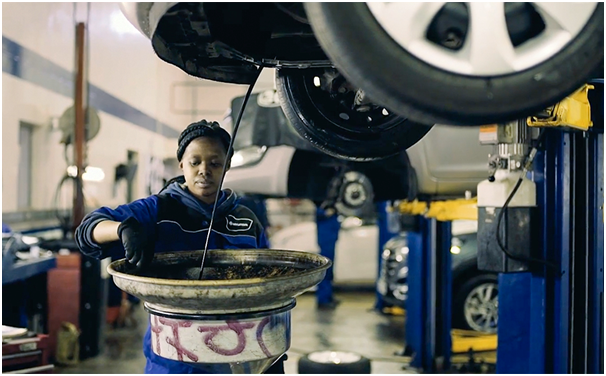 We work with the AU and Member States to provide scholarships to young people to be trained in the basic skills a country need. We support projects that lend themselves to universal education for our youths, especially girls.
We work with the AU and Member States to provide scholarships to young people to be trained in the basic skills a country need. We support projects that lend themselves to universal education for our youths, especially girls.
The Directorate work with the chapters to ensure that the activities of the AU are effectively publicized, including AU Watch’s curricula and teaching materials for schools (junior and senior), colleges and universities. Such publicity shall also involve, for example and where appropriate, organizing interviews with leading AU personalities that will visit the country, seminars, yearly schools athletics, football and other sports competition, press conferences / briefings, schools / colleges debating competitions, moot court competitions for schools and colleges, spelling competitions for junior and senior schools and radio and TV debates on all AU matters.
 Regional Economic Integration
Regional Economic Integration
If Africa’s growing population is to enjoy increasing prosperity, there needs to be inclusive economic growth. Our cameras, analysis and reports focus on covering and reporting on African infrastructure development program – whether, for example, it is collaborating with the AU on water to improve trans-boundary water resource management, or analysis for exploratory drilling and surface exploration for geothermal power projects, we will be there to add our voices to the AU and AUMS.
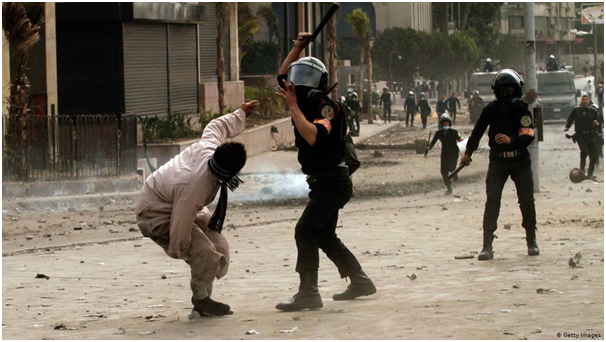 Human Rights, Good Governance and Rule of Law
Human Rights, Good Governance and Rule of Law
Corruption, human rights violations, impunity, futile fratricidal conflicts, poor governance are the bane of Africa. In 2010, the AU adopted its African Governance Architecture (AGA). It is intended as an overall framework for the many different African institutions concerned with governance, between which there has been little coordination. AU Watch supports the development of the AGA by giving it plenty of media coverage with the aim of improving the enforcement of democratic standards and human rights in Africa. Working with other AU Watch programs, the Media Directorate will host international TV and radio debates on the issue and come up with robust analysis to guide policy makers.
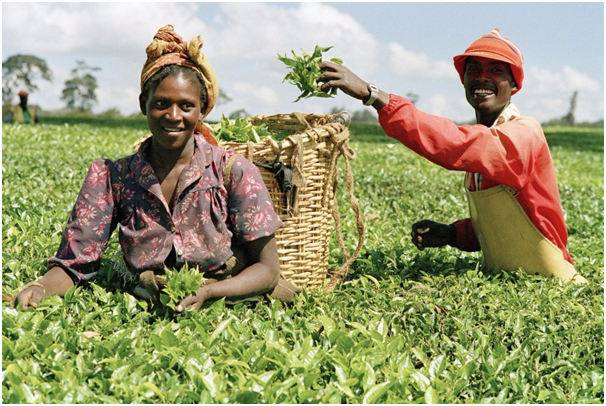 Sustainable and Rural Development
Sustainable and Rural Development
Food security is just too important to leave in the hands of our policy makers. Too many of our compatriots go to bed and wake up hungry. That is unacceptable to us. It’s a scandal. The African Union’s Comprehensive Africa Agriculture Development Program (CAADP) is intended to give Africa’s agricultural sector a boost. The AU is hoping to bring the annual rate of growth in the agricultural sector to six per cent, and get African countries to devote ten per cent of their budgets to agricultural development. AU Watch will support the program by publicizing what the AU is doing. Working with the Sustainable Development and Policy, Programs and Administrative Directorates we will assist through policy advice, agricultural training and assistance for climate change adaptation. Over time we will practically assist farmers to improve agricultural output. We are aware that the program is almost a model for agricultural development on the continent. The AU says that thirty African countries have embraced the reform agenda, with twenty-seven countries implementing national CAADP agricultural investment plans. The question is how farmers in Africa really are participating in the scheme? Why is it not widely known?
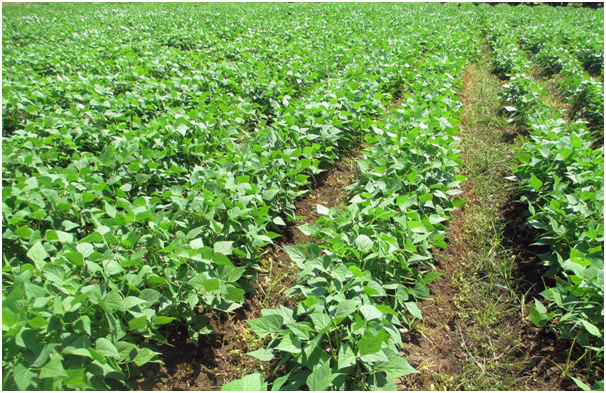 Adaptation to Climate Change
Adaptation to Climate Change
Climate change is a reality. At the recently concluded 57th African Commission Session it was revealed that if nothing is done to avert humans’ disastrous onward march to more greenhouse effects, 30 million Africans will die because of climate change. The unfortunate side of the story is that Africa is the least polluter of greenhouses gases, but will suffer most. In 2012, the AU summit decided to launch the African Risk Capacity, drought insurance for African countries that are struggling with the consequences of climate change.
The African Risk Capacity is intended to reduce African countries’ growing dependence on food aid and emergency relief in the face of climate change. The African Risk Capacity will work closely with international reinsurance companies. But is that how to resolve a problem that will potentially ruin Africa? What about the involvement of the African citizen? How many Africans are aware that the droughts, flashfloods and rise in sea levels, that we as Africans are experiencing are as a direct result of man’s deliberate tampering with nature? How many Africans really understand the arguments for and against climate change? How many farmers are aware that cutting down trees hundreds of years old for cooking or for furniture is killing the planet? We will take the debate to the people, were we think it rightfully belongs. In schools, colleges and universities through our extensive media and outreach services we will bring the issues to the fore.
By galvanizing our uniquely knowledgeable and influential network of scholars, analysts and volunteers, AU Watch provides an essential forum for navigating this very urgent and global problem. Through the ideas we generate, the papers we write, our radio and TV broadcast, we hope to shape policy choices and strategies to create a more secure and prosperous world.
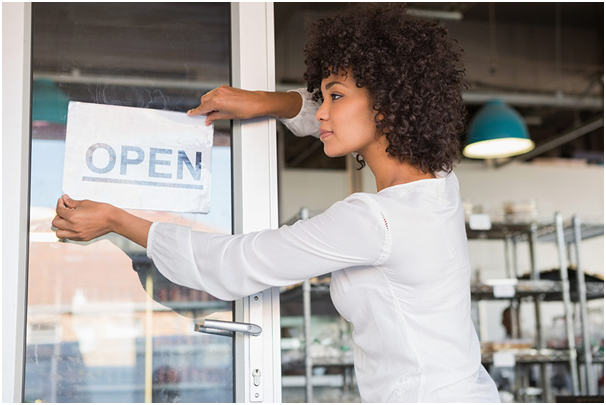 Youths, Women and Small Businesses
Youths, Women and Small Businesses
With one-fifth of Africa’s working population jobless, our focus is also on assisting young people, women and developing micro, small, medium, and community enterprises. They are the future.
Scope of the Work of the Directorate
The MOED produces thousands of hours a year of TV, radio, online and mobile phone content, working where we can in partnership with other media organizations. Using all means possible we tell the stories, firstly of the AU and then of ordinary people as they relate to the AU and its member states – from radio, blogs, news, web features, op-eds and TV appearances, to conferences, research reports, speaking engagements, and books — AU Watch works vigorously to present citizens with incisive and understandable analysis of the work of the AU, its institutions and programs. In all African countries, we run hundreds of private and public events – conferences, workshops and roundtables, interviews with leading AU personalities, radio and TV dramas, on stage performances, films, documentaries, seminars, yearly schools athletics, football and other sports competitions, press conferences / briefings, schools / colleges debating competitions, moot court competitions for schools and colleges, spelling competitions for junior and senior schools and radio and TV debates on all AU matters.
We provide spokespeople for television, radio and press concerning the range of issues covered by the AU. Whether it’s social and economic policy analysis, human rights, conflict and peace, development, security, education governance and more we have the experts who can articulate the issues clearly. AU Watch understands that media and communication can have a deep and positive result on the lives of people – especially on the poor and vulnerable. Using its network of scholars, volunteers and other professionals, including think-tanks, AU Watch uses media, research and evaluation to help inform political, economic and social policies at the AU to improve people’s lives and to bring about lasting change.
The scope of the work of the Directorate is broader than media production. It includes also:
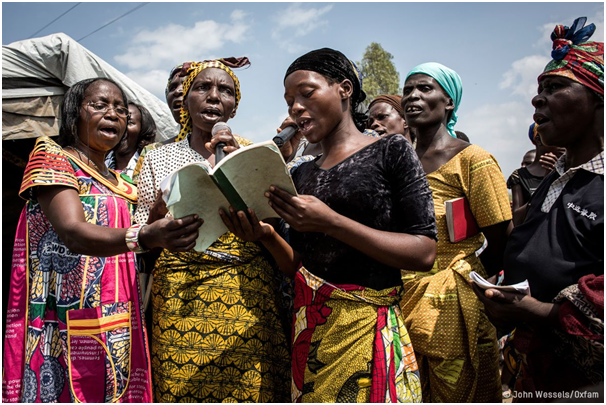 Empowering Local People and Communities
Empowering Local People and Communities
Working with the AU and other stakeholders we strengthen our partnership with the AU, Nepad and other actors who drive development changes that can have a positive impact on the poor in Africa. We want to influence change on the ground. Our programs and projects aim to empower people and communities, so that their voices can be heard by those in positions of power who have the capacity to effect positive changes on the ground. We want more citizens should not only be aware of what potential is out there, but how they can buy into and be involved in the work of the AU.
We also provide unique images and stories about human rights across the Africa.
 Training and Capacity Building
Training and Capacity Building
We build our institutional capacity to be fit for purpose, making changes internally to ensure our culture, resources, systems and structures deliver on all our mission and objectives. Our long-term objective in this area is to provide hands-on training and intensive mentoring for TV and radio journalists; to provide expert media advice to policy makers and other people and agencies that impact on African development. We promote and protect high quality journalism, support media institutions and strengthen public service broadcasting. We also work with professional and citizen journalists where media freedom and freedom of speech are under threat, raising public awareness of and people’s ability to understand their rights.
We combine thematically-focused work in research and knowledge clusters with AU Watch’s progress towards a set of major strategic goals, built around eradicating poverty, addressing issue of governance, creating jobs, reducing inequalities, accelerating environmental sustainability and addressing the effects of climate change, building inclusive and secure societies, and harnessing digital opportunities for social justice. Our extensive research program informs each stage of project delivery and helps us measure our impact and reach. We have deployed hundreds of researchers, mostly from the countries we are based in and working in their local languages. The long-term objective is for us to co-construct knowledge and reconstruct excellence – by developing and implementing collaborative ways of working with a range of stakeholders which engage multiple perspectives in defining problems and questions and in generating knowledge that helps vulnerable people and communities. We will continue the engaged excellence of our work, including fuller integration of cutting-edge approaches to impact AU Watch’s research and knowledge activities and deepened collaboration with the AU.
Informing Development Policy

We are bringing analysis to regional development issues that poor and vulnerable people depend on in order for their lives to be improved by engaging in dynamic policy environments. We are adept in engaging with policy, institutional and political processes that are shifting and multi-sited. The knowledge we generate and share with policy-makers, businesses, CSOs, academics and practitioners plays a significant role in helping the AU achieve its grand objective of a prosperous and secure Africa at peace with itself.
 Influencing Change on the Ground
Influencing Change on the Ground
Technical approaches are only part of the answer. Good change and impact that matters rarely occur without political shifts driven by citizens, businesses and governments. We are also a practical organization, delivering a blend of political, scientific, economic and social analysis which the real-world demands.We practically empower disadvantaged people and communities in Africa to achieve sustainable economic and social progress, strengthen their communities and civil society and promote democracy and governance. Around Africa, we work to find practical, pioneering ways for communities and individuals to get out of poverty. By supporting schools, to helping farmers sell their crops for a fair price, to improving access to people with HIV/AIDS to healthcare – our long-term development projects are transforming lives. We work with the AU, member states and communities to tackle the causes of poverty by a combination of hands on know-how, financial investment and education. Through our media, outreach and education programs, we give women and poor people a voice to speak out against the laws, actions and policies that keep them in poverty. We force the AU and its member states to listen, take action and reform! This is how we create lasting change. As a ‘do’ tank our programs are designed to generate livelihoods and increase incomes for disadvantaged individuals and families through microenterprise development, skills training, agricultural support and much more.
 Influencing Institutions:
Influencing Institutions:
Even though we know the AU is aware of the plight of the people they govern, AU Watch’s programs will aggressively highlight the predicament of the poor in Africa so that our state managers direct resources to address the issue. Our tireless campaigns and media advocacy will ensure that Africa’s poor are not ignored as it is now. Our media blitz will ensure that we keep the feet of our state mangers, big businesses and corporations close to the fire so that the needs of vulnerable and excluded people and communities are addressed. Change happens if you can engage the political, social and economic institutions within society. Our media work in collaborations with other institutions also includes.
 AU Watch TV, Online Radio and AU Watch Social Media Units
AU Watch TV, Online Radio and AU Watch Social Media Units
We are an outreach, media and communications outfit. Underpinning the work of AU Watch is collaboration with all our publics. Our approach to using media and communication for human rights work, development and social justice seeks to not only to make a point – challenging the way the AU operates, but also to make a difference. Through our 53 country offices and a core team in the Addis, we work closely with media houses, local and national broadcasters, non-governmental organizations, government ministries and broadcasters to ensure our efforts are linked up on the ground to bring lasting change.
In collaboration with our IT and Media Directorates, we provide live streaming and or live broadcast for all AU meetings and events. The goal is simple: if you are in Mars and have internet access, you can still watch an AU event and follow our commentary and analysis, or even take part in our interactive debates.
For more information on the Media, Outreach and Education Committee and its Directorate – fact sheets, briefings reports, position and research papers, articles, news reports, op eds, TV and radio broadcast schedules and times, communiqués, press statements and releases, legislative briefs, current laws, soft laws and hard laws, cases and general information on the history and organs of the AU and what you can do to assist the media team, please email [email protected].